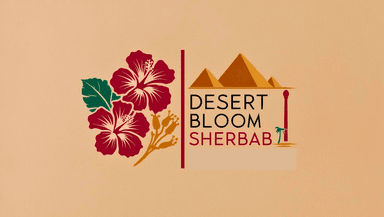
About Sherbab Village
Learn about our community, our challenges, and our vision for the future.
About Sudan
Sudan, officially the Republic of Sudan, is a country located in Northeast Africa. It is bordered by Egypt to the north, Libya to the northwest, Chad to the west, the Central African Republic to the southwest, South Sudan to the south, Ethiopia to the southeast, Eritrea to the east, and the Red Sea to the northeast.
With a rich history dating back to ancient civilizations, Sudan was home to the Kingdom of Kush, which flourished from around 1070 BCE to 350 CE. The Nile River, which flows through Sudan, has been central to the country's development and culture throughout history.
Sudan has a diverse cultural landscape with over 500 ethnic groups and languages. The majority of Sudanese people are Sunni Muslims, with a small Christian minority. Traditional Sudanese music, dance, and crafts reflect the country's cultural diversity and historical influences.
Despite its rich cultural heritage and natural resources, Sudan faces significant challenges including political instability, economic difficulties, and humanitarian crises. Our charity focuses on sustainable development in Sherbab village, contributing to positive change in this beautiful country.
Key Facts About Sudan
- •Capital: Khartoum
- •Population: Approximately 45 million
- •Official Languages: Arabic and English
- •Currency: Sudanese Pound (SDG)
- •Climate: Hot desert climate in the north, tropical climate in the south
- •Major Rivers: Nile, Blue Nile, White Nile
Cultural Heritage
Sudan has a rich cultural heritage with influences from Arab, African, and Nubian traditions. The country is known for:
- •Traditional music featuring instruments like the tambour and rababa
- •Vibrant folk dances such as the Kambala and Hausa
- •Distinctive architecture, including the ancient pyramids of Meroe
Our Village
Sherbab is a small village located near Shendi in northern Sudan, along the Nile River. With a population of approximately 2,000 people, our community has a rich cultural heritage and strong agricultural traditions.
The village economy is primarily based on farming, with residents growing crops such as sorghum, wheat, and vegetables. Many families also raise livestock, including goats and sheep.
Despite our strong community bonds and cultural heritage, Sherbab faces significant challenges in education, healthcare, infrastructure, and economic opportunities. Our charity works to address these challenges through sustainable development initiatives.

Challenges We Face
Limited Educational Resources
Many children, especially girls, have limited access to quality education due to lack of school facilities, qualified teachers, and educational materials.
Water Scarcity
Despite being near the Nile, many households lack reliable access to clean water for drinking and irrigation, especially during dry seasons.
Limited Healthcare
The village lacks adequate healthcare facilities, making it difficult for residents to access medical care, especially for women and children.
Energy Access
Many households lack reliable electricity, limiting economic opportunities and affecting quality of life, education, and healthcare.
Digital Divide
Limited access to technology and internet connectivity restricts educational and economic opportunities for village residents.
Agricultural Challenges
Traditional farming methods, climate change, and limited access to modern agricultural techniques affect crop yields and food security.
Our Vision
We envision a thriving Sherbab village where all residents have access to quality education, healthcare, clean water, and sustainable livelihoods. We believe in community-led development that respects local culture while embracing innovation and sustainability.
Explore Our ProgramsOur Team
Ahmed Hassan
Founder & Director
Born in Sherbab, Ahmed founded the charity after returning from his studies abroad, determined to give back to his community.
Fatima Ibrahim
Education Program Director
With 15 years of teaching experience, Fatima leads our education initiatives with passion and expertise.
Mohammed Ali
Agricultural Specialist
Mohammed brings modern sustainable farming techniques to help improve crop yields and food security in the village.